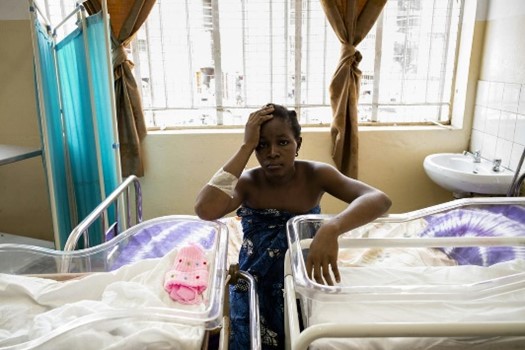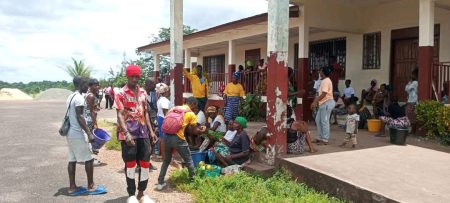The World Health Organization (WHO) launched a Call to Action campaign in Bentol City, Liberia, to address the alarming rates of maternal and newborn mortality worldwide. Dr. Abdullahi Sule, WHO Liberia Officer-In-Charge, presented grim statistics revealing that 20 mothers and 120 newborns die every hour due to childbirth complications. Globally, nearly 300,000 women die annually from pregnancy or childbirth-related causes, with an additional 2.3 million babies dying within their first month and 1.9 million stillbirths. Africa bears a disproportionate burden, accounting for 178,000 maternal deaths and a significant portion of newborn deaths, with one woman dying every two minutes in childbirth. Dr. Sule emphasized the urgent need for increased investment in maternal and newborn health services, including antenatal care, skilled birth attendance, emergency obstetrics, and postnatal care.
The Call to Action campaign aims to significantly reduce maternal and neonatal mortality in Liberia. Dr. Sule stressed the importance of expanding equitable access to quality care, particularly in remote and crisis-affected areas. He also urged the Liberian legislature to enact and enforce laws protecting women and children’s health rights, including maternity protection and access to sexual and reproductive health services. This legislative action is crucial for creating a supportive legal framework that prioritizes maternal and child health. The campaign seeks to address the systemic issues hindering access to adequate healthcare services, particularly for vulnerable populations.
Senator Nyonblee Karnga Lawrence, Senate Pro-Tempore, echoed the call to action, emphasizing the need for increased investment, education, and empowerment. She highlighted the importance of community engagement, policy advocacy, and a comprehensive approach to tackle the healthcare crisis effectively. Senator Lawrence advocated for allocating more resources to improve healthcare infrastructure and ensure the availability of skilled healthcare professionals, especially in rural areas where access is often limited. She also recommended implementing comprehensive education programs to inform women, adolescent girls, and youth about reproductive health and prenatal care, emphasizing the importance of collaboration with traditional leaders, midwives, and families.
The WHO’s global analysis of maternal deaths between 2000 and 2023 identified the most common causes as heavy bleeding following childbirth, unsafe abortions leading to infections and hemorrhaging, and pre-eclampsia, a serious condition characterized by high blood pressure during pregnancy and labor. Addressing these specific causes requires targeted interventions and improved access to safe abortion services, as well as comprehensive management of pre-eclampsia. The campaign recognizes the interconnectedness of these issues and the need for a multifaceted approach to improve maternal health outcomes.
The Call to Action campaign signifies a concerted effort to combat preventable maternal and newborn deaths in Liberia. It underscores the importance of collaboration between international organizations like WHO, government bodies, healthcare professionals, and community leaders. By focusing on increased investment, improved access to quality care, education, and empowerment, the campaign strives to create a sustainable and effective framework for reducing maternal and newborn mortality. The emphasis on reaching marginalized communities and addressing the specific causes of maternal deaths highlights the campaign’s commitment to equitable and comprehensive healthcare solutions.
This initiative aligns with global efforts to achieve Sustainable Development Goal 3, which aims to ensure healthy lives and promote well-being for all at all ages. The call to action serves as a reminder of the urgency and importance of prioritizing maternal and newborn health. By addressing the underlying social, economic, and systemic factors contributing to these preventable deaths, the campaign aims to create a brighter future for mothers and newborns in Liberia and beyond. The long-term success of this initiative depends on sustained commitment, adequate resources, and effective implementation of evidence-based strategies.














